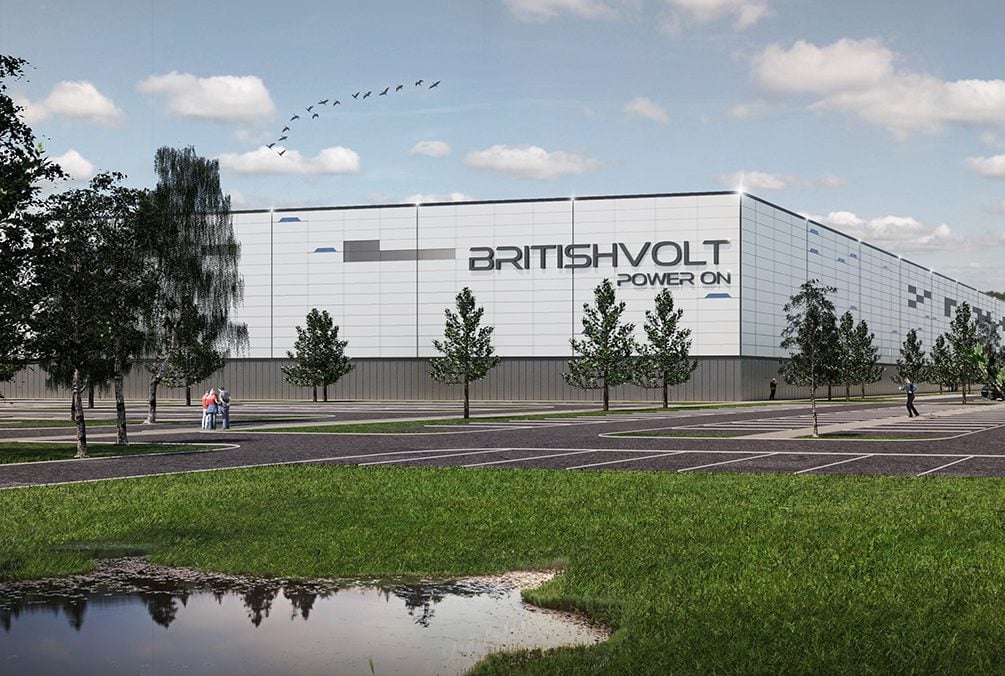A little over a year ago I wrote the obituary for Britishvolt, which was meant to be the UK’s homegrown hero and a competitor to Tesla. Nine months after the company broke ground on its gigafactory in Cambois in Northumberland, it had been run into the ground, resulting in hundreds of redundancies.
The waste and reckless spending – on private jets, pointlessly large computer monitors, and online yoga classes from a Dubai-based fitness instructor– have become the stuff of legend.
But in spite of Britishvolt’s very public failure, and an aborted attempt to resuscitate the plan from Australian battery startup Recharge Industries that went nowhere, there are still reasons to be cheerful about the state of battery tech and electric vehicles… including in the part of the world that suffered most from Britishvolt’s collapse.
“In its wake it left behind a lot of good people, who have subsequently landed very good positions in new roles in the sector across the globe,” says Ben Kilbey, former comms director at Britishvolt, and the founder of sustainability communications specialist Bold Voodoo. “The people that fared worse were the people of Northumberland.”
Nevertheless, the electric vehicle (EV) revolution, while not quite in high gear thanks to Rishi Sunak’s government pushing back its zero-emission vehicle mandate, which had previously required only zero-emission vehicles were sold by 2030, five years to 2035, change is coming. And North East startups and scaleups still play a role.
Where Britishvolt failed, others hope to do better. Advanced Electric Machines (AEM), a Newcastle University spinout based in Washington, raised a £23 million Series A round in November 2023, designed to scale up its production facilities and creating new jobs. At 40 new roles in the next two years, it’s a far cry from Britishvolt’s 200-plus headcount, but it’s something.
And AEM is building where Britishvolt didn’t. Its High-Density Switched Reluctance Machine (HDSRM) is already in production and used in some commercial vehicles, with a scaled-down version for passenger vehicles, the SSRD, in development. That project is being supported by Innovate UK and Bentley Motors, as well as the Advanced Propulsion Centre. AEM’s batteries contain no rare earths or copper, meaning they’re better for the environment when being built – and easier to recycle when at the end of their lives.
The big beast in the field is Japanese firm AESC, which is building a 15.8GWh gigafactory in Sunderland to augment a 1.8GWh facility also in the city which has been operational since 2012. AESC’s gigaplants will produce the lithium-ion batteries that power electric vehicles, with much of AESC’s production earmarked for the nearby Nissan factory.
Work on the new plant began in 2022, and just last month AESC gained a £200m bridging loan from the UK Infrastructure Bank, whose CEO John Flint said: “Gigafactories are an essential part of [the battery] supply chain. They also have the potential to secure and create thousands of jobs, but serious investment is needed to scale up production.” Flint also described the loan as a signal for “the Bank’s appetite to play a meaningful role in the financing of the domestic battery supply chain”.
Despite that, funding in the North East is still lacking, according to the local outpost of the Faraday Institution, a research institute campaigning for better battery tech, led by Colin Herron, a professor of practice at Newcastle University’s school of engineering.
Herron is also spearheading the North East Battery Alliance, a cluster set up in June 2022 to advance the potential of batteries – and to ensure the North East has a voice in it. Herron is “exceptional”, says Kilbey, while colleague Lois Warne is an “all-round Wonder Woman” for the EV and battery tech cause.
The presence of both gives Kilbey hope. “We still live very firmly in the age of the battery,” he says. And they’re already taking action: the Faraday Institution will host its National Battery Conference in the North East in September, bringing 500 delegates to the region.
Of course it’s the case, as with all things in this region, that we’re often the last to get a government handout, and the least likely to be heard because we’re too far outside the capital and the Westminster bubble. You could call it range anxiety, of a sort.
Chris Stokel-Walker is a freelance journalist based in Newcastle and UKTN’s North East columnist.
The post Think Britishvolt marked the death of UK battery tech? Think again appeared first on UKTN.



